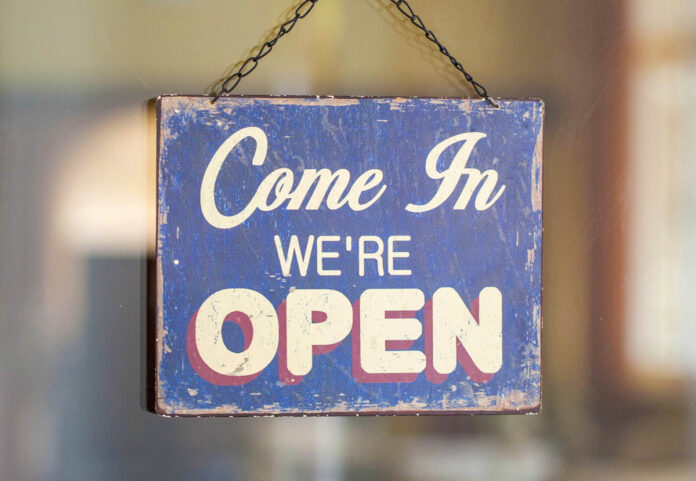SALINAS VALLEY — Cities within Monterey County continue to move toward reopening in slow phases, with recent guideline changes from the state meaning different, and often easier, hurdles to pass in order to ease restrictions.
“Under the previous criteria, the county would not have met the metrics that were outlined to have a faster reopening,” said Charles McKee, the county’s chief administrative officer, in a virtual press conference last week. “Under the new criteria that was announced on Monday, we are pretty confident we are going to be able to meet the criteria that is being set forth by the governor to move more quickly through phase two.”
McKee noted the county is mindful of balancing public health and containing the spread of the Covid-19 virus against the impact to businesses and stress on the unemployed.
“That balancing act is very difficult. We want to make sure we’re not making some false choices and making the right choices to open and keep our county open,” McKee said. “If we have some backsliding, that would not be very good for our community, for our economy, our psyche, here. And, we don’t want to open ourselves up to a surge and spread, such that we have to re-impose restrictions.”
Hits to businesses and jobs have caused resistance, including one restaurant in Carmel that defied shelter-in-place orders.
McKee commented on enforcement during another press conference last Wednesday, having earlier said the county would prefer law enforcement play an educational role rather than a punitive role when it comes to responses.
“I understand the pent up demand, and there are businesses that are really hurting,” he said. “The risk that we have here is if businesses open up before the state authorizes it, we run the risk of the state coming in and trying to impose sanctions on us.”
McKee explained that the threat of state punishments is a real risk businesses pose to their regions.
“They’ve already sent letters to other jurisdictions where they’re threatening to withhold emergency services funding and other funding — funding through the CARES act for example — for those jurisdictions that are not following the state orders in relation to shelter in place and opening up businesses,” McKee said.
McKee urged businesses and residents to keep their eyes on the horizon and the progress toward the second stage of reopening.
“It’s really tough for those who don’t have a job or businesses that are trying to stay afloat, but if we don’t follow through an orderly process, we run the risk of the state coming in and imposing monetary restrictions on us or withholding money from us, and those monies flow through to our community,” he said.
He explained that businesses ignoring guidelines also run the risk of triggering an outbreak of Covid-19, while the county has otherwise kept the numbers low and the cases relatively contained.
“I would just encourage everyone to follow the state order, the local order, and recognize that we’re trying to open up as quickly as possible and in a way that’s safe for all,” McKee said. “We’re making such great progress that we don’t want to go backwards.”
A key component of being allowed to move more quickly to phase two, opening low-risk businesses, is to have a containment plan in the event of a surge of Covid-19 cases and hospitalizations, according to McKee. He said the county’s health officer, Dr. Edward Moreno, is busy determining those metrics to safely guide the county back to reopening and noted the county’s populace has “done such a great job at this point” of following government health guidelines.
“As we reopen, keeping those good health practices in place will allow us to continue the easing and move back to some semblance of normalcy,” McKee said.
King City Mayor Mike LeBarre opened the Friday press conference with information about South Monterey County cities and their procedures for reopening.
“Our position is, we want to do this in a methodical way,” LeBarre said. “We want to get all our businesses to follow the state rules and their guidelines and their checklist, because that is an important component.”
He said there have been no requests by merchants to shut down streets and use them as business space for restaurant seating or sidewalk sale areas, as has been proposed by Carmel and Monterey.
“We would work with our police department, or city staff, or public works, and if it is a safe alternative, I don’t see any issues with that, but we haven’t had any requests,” LeBarre said.
The recent passing of Fair Week in King City meant a virtual livestock show and upcoming virtual auction in lieu of the annual Salinas Valley Fair, which is a regional moneymaker. Without its presence, LeBarre was asked about the impact on the city.
“We’re expecting significant losses,” he said. “We started planning contingencies a few weeks ago. A lot of losses for cities is going to come in a couple quarters from now when we start receiving the sales tax revenue that we generated during this period. So we’re planning for that.”
Nationwide, predictions for significant impacts on government budgets are already lining up. The specifics of the impacts are unknown, but agencies at all levels must plan accordingly, including at the city level.
“Our focus is to keep all our staff,” LeBarre said. “We have a great, great group of people who have been doing some amazing work for our city. We don’t want to lose them. We’re looking at every way that we could either cut our costs, push back projects, and try to do as much with our grants we already have in place.”
Though a period of fiscal hits is on the way, LeBarre said he was optimistic about economic recovery.
“We’ll weather through this, and I firmly believe the economy is going to pick up very quickly,” he said. “It was strong before all this and we have a great group of business owners and a great community. Once we get moving and we do this in a good, safe way and know what we’re doing, it’s going to make us stronger in the long run.”














